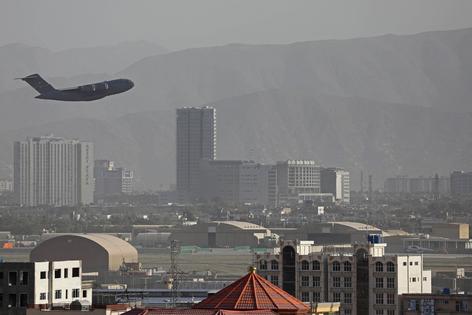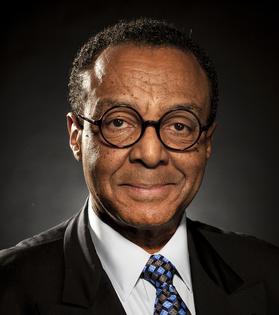With Afghanistan in the Rearview Mirror, Have We Learned the Lessons of Vietnam This Time?
Watching the last American military plane go wheels up and out of the Afghanistan War reminded me of an old saying: History often repeats itself, but a lot of us would rather not pay attention.
On July 8, when President Joe Biden was defending his decision to withdraw all remaining U.S. forces, he was asked the inevitable question of whether he saw parallels with our defeat in Vietnam.
“None whatsoever. Zero,” he said, according to the White House transcript. “The Taliban is not … the North Vietnamese Army. They’re not remotely comparable in terms of capability.”
He then said, famously, “There’s going to be no circumstance where you see people being lifted off the roof of an embassy,” an obvious reference to the iconic news photos of our farewell to Saigon.
We know better now and so does Biden.
“When will they ever learn?” I wondered, recalling a line from Pete Seeger’s popular Vietnam-era anti-war song, “Where Have All the Flowers Gone?”
What are the lessons of Vietnam? The question has been asked and answered countless times since that war’s disastrous end in 1975. Now I ask the same questions about the lessons from our Afghanistan loss, and the answers sound sadly familiar.
Lesson one: Know what you’re fighting for.
In Vietnam, we weren’t fighting the same war that our enemy was fighting. In simple terms, we were fighting to stop the spread of international communism, while our enemy was fighting a war against colonial or neocolonial dominance by outsiders, first against China, then against the French and finally against us.
It’s hard to beat the motivations of an enemy that is fighting for its own land against outsiders. After we departed, the Vietnamese reunified and eventually became one of our friendliest multibillion-dollar trading partners in that region.
Afghanistan is a different story. Unlike Vietnam, which had a long and rich history of national identity before we intervened, Afghanistan is a multiethnic and mostly tribal society with well over a dozen language and ethnic groups spread out over various regions.
As horrendous as Taliban rule has proved itself to be, they have earned important support from some Afghans, particularly in the country’s vast tribal areas, as an alternative to the notoriously corrupt central government.
Whether they approve of the Taliban’s ultraconservative brand of Islam or not, people tend to, at least, tolerate outsiders who become part of their local village life more than those who are dropping bombs or firing missiles at them from drones.
Lesson two: Avoid “mission creep.”
Our policy toward Vietnam changed repeatedly as we tried to figure out what would work with an enemy whose motives we didn’t fully understand.
Our initial mission in Afghanistan could hardly be more clear: Find and eliminate Osama bin Laden and others behind the Sept. 11 terrorist attacks. Mission accomplished. It turns out that would have been a great time for us to have declared victory and come home.
Lesson three: No “nation building.”
In other words, don’t try to build or strengthen a sense of national identity and create a politically stable and viable state in a country that’s not ready for it.
I mean no insult to those fighters for the South Vietnamese or Afghan military who fought heroically. But even they, too, often found that their own governments, our allies, didn’t have their backs.
Biden assured reporters that defeat was not “inevitable” because “the Afghan troops have 300,000 well-equipped — as well-equipped as any army in the world — and an air force against something like 75,000 Taliban.”
Unfortunately, we now hear the sad details of how many of those troops hadn’t been paid or even fed in weeks or months. Americans took away air support, the Afghan army quickly collapsed as President Ashraf Ghani was packing his bags, reportedly with piles of cash, to flee the capital. So much for being “well-equipped.”
There are other lessons that apply, particularly those outlined after Vietnam by former Secretary of State Colin Powell and former Secretary of Defense Caspar Weinberger to avoid future quagmires.
But now we’re more likely to hear about the “hubris,” excessive pride and self-confidence that caused past administrations to plunge too quickly and with the best of intentions into biting off, in the end, more than we’re willing to chew.
Now I expect to see another rise in isolationism, as we saw after Vietnam.
It makes sense for us to avoid the hubris of thinking we can solve all the world’s problems. That’s sensible and understandable, as long as we don’t try so hard to ignore the rest of the world that we invite some future Osama bin Laden to bring his war over here.
========
(E-mail Clarence Page at cpage@chicagotribune.com.)
©2021 Clarence Page. Distributed by Tribune Content Agency, LLC.
(c) 2021 CLARENCE PAGE DISTRIBUTED BY TRIBUNE MEDIA SERVICES, INC.










